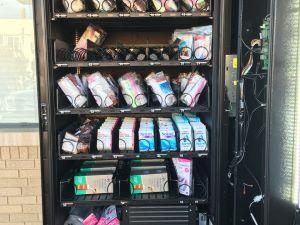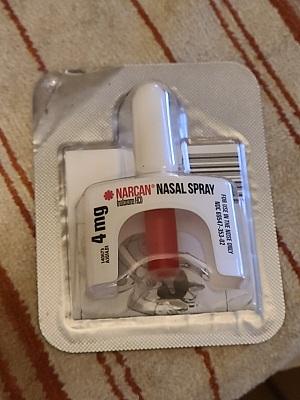The city of New York is about to embark on a new program aimed at reducing the toll of drug overdoses in the city: naloxone vending machines. Naloxone is an opioid overdose reversal drug that has saved tens of thousands of lives, and the city wants it to be conveniently and easily available.

"The purpose of this RFP is to support low-barrier access to overdose prevention and harm reduction supplies," the department said.
Bids are due later this week, with a contract start-up date of February 7. The program will run through June at a cost of $730,000. The machines will be installed in all five boroughs of the city in neighborhoods most impacted by drug overdoses.
The priority neighborhoods mentioned in the RFP are scattered throughout the city's five boroughs and include East New York, Crotona-Tremont, Highbridge-Morrisania, Hunts Point-Mott Haven, Fordham- Bronx Park, Pelham-Throgs Neck, Central Harlem, East Harlem Union Square, Rockaway, Stapleton-St. George, and South Beach-Tottenville.
"Overdose deaths in New York City are not equally distributed citywide, with some groups and neighborhoods disproportionately experiencing increases in the rate of overdose death," the department explained in the RFP. "During the previous three years, overdose rates among White New Yorkers decreased; however, rates increased among Black New Yorkers during the past year and rates among Latinx New Yorkers have increased for five consecutive years. Structural racism in drug policy and enforcement has been linked to decreased access to services, poorer health outcomes, and increased overdose risk."
The department reported that opioid overdose deaths had reached "epidemic levels" by 2019, with 1,463 unintentional overdose deaths in the city. More than four out five of those overdose deaths involved opioids, with the fast-acting synthetic opioid fentanyl involved in more than two thirds of them.
The city's move is earning kudos from the Drug Policy Alliance (DPA), which says it supports the plan.
"This approach is consistent with harm reduction strategies that seek to meet people who use drugs where they're at and ensure that people have access to safe resources to prevent blood-borne illness and distributing naloxone to people who are the most likely to encounter an overdose and be able to save lives," said DPA director for civil systems reform Melissa Moore in an email with the Chronicle. "The free vending machines mean that people will be able to access these supplies on their schedule and on their timeline, and without the stigma or shame."

"At this time there is a huge issue around poisoning and contamination in the drug supply (and significant disruption of the supply chain), so there is a need for more robust drug checking, especially for the amount of fentanyl in a substance, to save lives," she said. "This would include making sure that people who use drugs have access to this equipment at harm reduction programs. There can and should also be movement on safe supply options, as a way to further deal with the contamination and poisoning."
But's that is not all, she said.
"Additionally, if we want to save lives, reduce criminalization, and curb racial disparities, we need comprehensive, innovative, and forward-thinking approaches like decriminalizing personal possession of drugs. This would build on Measure 110, which was passed by two-thirds of voters in Oregon and codify proven public health approaches over criminalization and other failed enforcement tactics of the past."
New York City's naloxone vending machine program is a widely noted harm reduction innovation, but it is not the first in the country. That distinction may go to Las Vegas, which had naloxone vending machines in 2019. And last year, the city of Cincinnati rolled them out in March and the state of Indiana deployed 19 of them in December.
The overdose crisis requires innovation, and getting the opioid overdose reversal drug into the hands of people who could use it is a good example of that. It won't solve the problem -- that will require much more radical shifts in public policy -- but it will reduce the harm.
Add new comment